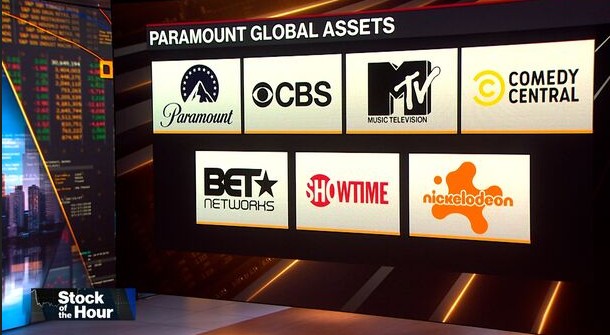In the world of anime, fans are often unimpressed by the prospect of live-action adaptations, yet studios continue to move forward with these projects, drawn by the potential for profit and new audiences. Netflix, for instance, recently announced a live-action version of the popular series Solo Leveling, originally a Korean web novel that gained fame after its anime debut. While some fans hold cautious optimism, many express doubts about whether the adaptation can capture the essence and visual spectacle of the animated original.
"Live-action adaptations usually miss the mark," shares Swedish fan Andre Denisson, emphasizing that his experiences with these projects have left him disenchanted. The rich visual art and dynamic sequences that characterize anime, such as those found in Solo Leveling’s intense battle scenes, present a unique challenge for filmmakers attempting to translate them into live action. For fans like Spanish resident Ander Guerrero, the fear of poor CGI overshadowing critical scenes is a major concern.
Solo Leveling tells the story of Sung Jin-woo, the “weakest hunter” who transforms into a powerful force after a life-altering encounter. Its compelling narrative and thrilling action sequences helped it to outpace popular titles like Demon Slayer and One Piece on streaming platforms like Crunchyroll, which underline the delicate balance studios must strike between delivering a faithful adaptation and appealing to broader audiences.
Obtaining the right tone poses another challenge. YouTube reviewer Geoff Thew notes that dramatic and aesthetic elements that thrive in animation do not seamlessly transfer to live action, which can result in a disappointing experience for fans who are expecting those signature iconic moments to be preserved.
Hollywood's track record with anime adaptations has often been rocky, with notorious flops such as 2009’s Dragonball Evolution and the heavily criticized 2017 film Ghost in the Shell. However, with big productions like Gundam and Naruto reportedly on the way, studios seem resistant to the lessons of the past. Many see a financial opportunity in the growing anime market, projected to exceed $60 billion by 2030.
The pandemic fostered a resurgence in anime popularity, shifting perceptions and attracting new audiences. With more than half of Netflix's 300 million subscribers now consuming anime content and a noted increase in engagement, streaming platforms sense a ripe environment for adaptations.
Amidst this struggle, some fans remain hopeful, especially given that the cast of Solo Leveling has strong Korean roots. This connection could ensure a more authentic portrayal of the material, much like the positive reception of Netflix’s live-action One Piece, which embraced diversity while retaining the essence of its source material.
Will the endeavor with Solo Leveling succeed? It’s contingent on the adaptation's fidelity to the core elements that fans cherish. If the series captivates audiences with cool action and relatable character arcs, it may bridge the gap between skepticism and appreciation, thereby introducing new fans to the vast worlds of anime.
"Live-action adaptations usually miss the mark," shares Swedish fan Andre Denisson, emphasizing that his experiences with these projects have left him disenchanted. The rich visual art and dynamic sequences that characterize anime, such as those found in Solo Leveling’s intense battle scenes, present a unique challenge for filmmakers attempting to translate them into live action. For fans like Spanish resident Ander Guerrero, the fear of poor CGI overshadowing critical scenes is a major concern.
Solo Leveling tells the story of Sung Jin-woo, the “weakest hunter” who transforms into a powerful force after a life-altering encounter. Its compelling narrative and thrilling action sequences helped it to outpace popular titles like Demon Slayer and One Piece on streaming platforms like Crunchyroll, which underline the delicate balance studios must strike between delivering a faithful adaptation and appealing to broader audiences.
Obtaining the right tone poses another challenge. YouTube reviewer Geoff Thew notes that dramatic and aesthetic elements that thrive in animation do not seamlessly transfer to live action, which can result in a disappointing experience for fans who are expecting those signature iconic moments to be preserved.
Hollywood's track record with anime adaptations has often been rocky, with notorious flops such as 2009’s Dragonball Evolution and the heavily criticized 2017 film Ghost in the Shell. However, with big productions like Gundam and Naruto reportedly on the way, studios seem resistant to the lessons of the past. Many see a financial opportunity in the growing anime market, projected to exceed $60 billion by 2030.
The pandemic fostered a resurgence in anime popularity, shifting perceptions and attracting new audiences. With more than half of Netflix's 300 million subscribers now consuming anime content and a noted increase in engagement, streaming platforms sense a ripe environment for adaptations.
Amidst this struggle, some fans remain hopeful, especially given that the cast of Solo Leveling has strong Korean roots. This connection could ensure a more authentic portrayal of the material, much like the positive reception of Netflix’s live-action One Piece, which embraced diversity while retaining the essence of its source material.
Will the endeavor with Solo Leveling succeed? It’s contingent on the adaptation's fidelity to the core elements that fans cherish. If the series captivates audiences with cool action and relatable character arcs, it may bridge the gap between skepticism and appreciation, thereby introducing new fans to the vast worlds of anime.


















